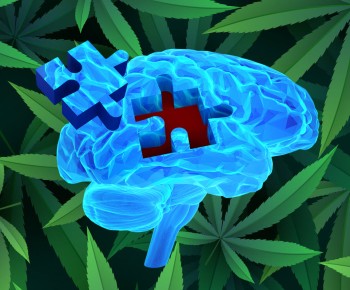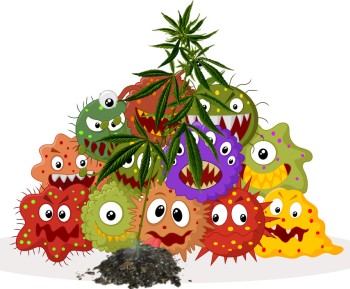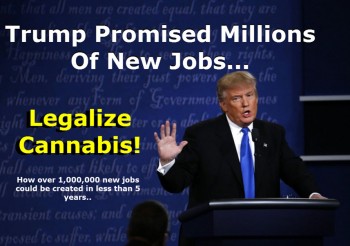
Nobody Cares if You Smoke Pot (And Science Proves It)
For decades, the stereotype of the cannabis user has been carefully cultivated: lazy, unmotivated, and certainly not someone you'd want performing your surgery or prescribing your medication. But what if I told you that this stigma, like so many others surrounding cannabis, is largely unfounded?
A fascinating new study published in the Journal of Hand Surgery Global Online has revealed something that might shock the pearl-clutchers and prohibition die-hards: most patients are perfectly comfortable with their doctors using cannabis outside of work hours. Yes, you read that right—the people most directly affected by a physician's competence aren't particularly concerned about their off-duty joint.
The research surveyed 388 patients at orthopedic surgery clinics in Pennsylvania and found that 45% of respondents were comfortable with their physicians using recreational cannabis outside of work, compared to just 25% who expressed discomfort. For medical cannabis, the comfort level jumped to 56%, nearly matching the 57% who were comfortable with their doctors using nicotine.
These findings challenge the foundation of workplace cannabis discrimination that continues to affect millions of Americans. If we're comfortable with our surgeons—professionals who literally hold our lives in their hands—unwinding with cannabis after hours, then why are we still testing the guy who delivers packages or processes data for a living?
The implications here go beyond just physicians. This study offers a glimpse into the quiet normalization of cannabis happening across America, often faster than policy makers and employers can keep up with. It suggests what many of us have long suspected: behind closed doors, most people really don't care what you do in your free time, as long as you show up and do your job well.
Let's dive deeper into what this study reveals about our evolving relationship with cannabis and what it means for the future of personal freedom in America.
The Study: What People Really Think About Their Pot-Smoking Docs
Conducted at four orthopedic surgery clinics in Pennsylvania (a state where only medical cannabis is currently legal), the study surveyed a predominantly white and older population with a mean age of 55. This demographic detail is particularly noteworthy—these aren't young progressives or cannabis enthusiasts skewing the results. In fact, 60% of respondents reported never having used cannabis themselves.
When asked about their comfort with physicians using various substances outside of work, patients exhibited some revealing preferences. Alcohol received the highest comfort rating at 64%, followed by nicotine at 57%. Medical marijuana came in at 56%—virtually tied with nicotine—while recreational cannabis garnered a 45% comfort rating.
The most interesting finding wasn't just the overall comfort levels, but the comparison to discomfort. For recreational cannabis, 45% were comfortable while 25% were uncomfortable (with the remainder being neutral or unsure). This means that nearly twice as many patients were okay with their doctor using cannabis recreationally than were opposed to it.
Even more striking is what didn't influence these attitudes. The researchers found that neither the patients' own cannabis use history nor their education level significantly affected their comfort with physician cannabis use. This contradicts the common assumption that only cannabis users themselves are accepting of others' consumption.
The study also explored patients' openness to cannabis as part of their treatment plans. About 53% were open to discussing cannabis as a treatment option, and 40% were willing to use cannabis medically. For CBD specifically, 55% were open to discussing it as part of treatment.
There was a notable level of uncertainty too—about 16% of respondents said they were unsure how they felt about their doctors using recreational cannabis, and 14% were unsure about medical use. This suggests that for many, this may be the first time they've even considered the question.
What makes these findings particularly significant is the context: these are patients evaluating healthcare providers—professionals whose judgment and capabilities directly impact their wellbeing. If there's any profession where we might expect heightened scrutiny of substance use, it would be medicine. Yet even in this domain, cannabis use outside of work hours is broadly accepted by patients.
The authors acknowledged the study's limitations, including its homogeneous population in rural Pennsylvania and the fact that recreational cannabis remains illegal in the state. But even with these caveats, the message is clear: the stigma surrounding cannabis use—even for those in high-trust professions—is eroding rapidly.
The Freedom to Choose: Private Lives and Professional Competence
The fundamental question underlying this study is one that extends far beyond medicine: Should what someone does in their personal time affect how we view their professional capabilities?
For decades, cannabis use has been treated as a character defect rather than a personal choice. Job applications have been rejected, careers derailed, and lives upended because someone tested positive for THC metabolites that could have been in their system for weeks after use. All this despite cannabis having no correlation with workplace accidents or decreased productivity—unlike alcohol, which is rarely tested for in employment screenings.
What this study highlights is the growing recognition that there's a distinction between personal choices and professional competence. Most patients seem to understand that a doctor who unwinds with cannabis on their day off isn't necessarily any less capable than one who relaxes with a glass of wine or a cigarette. In fact, given what we know about the relative harms of these substances, one could argue that cannabis is the more responsible choice.
This perspective represents a significant shift from the "Reefer Madness" era when cannabis was portrayed as a substance that fundamentally changed and degraded a person's character. Today's patients appear to be judging their healthcare providers on their actual performance and capabilities rather than on outdated stereotypes about cannabis users.
The inconsistency in how we treat different substances is particularly glaring. Alcohol, which is associated with violence, accidents, and significant health problems, receives the highest comfort rating at 64%. Meanwhile, cannabis—which has never caused a fatal overdose and is associated with far fewer social harms—still faces greater stigma.
Imagine for a moment if we applied the same standard to other personal choices. Would we question a surgeon's abilities if we knew they enjoyed rock climbing on weekends (a statistically dangerous activity)? Would we doubt a physician's judgment if they regularly consumed sugary sodas or fast food (choices with established health risks)? The selective scrutiny applied to cannabis reveals more about our cultural biases than any genuine concern for professional standards.
The real breakthrough in this study isn't just that patients accept their doctors using cannabis—it's that they implicitly recognize the principle that adults deserve the freedom to make their own choices about cannabis consumption without facing professional discrimination. If this principle holds true for doctors, shouldn't it apply equally to teachers, police officers, government employees, and private sector workers?
As cannabis legalization spreads across the country, this question of personal freedom versus institutional control becomes increasingly important. The patients in this study seem to be voting for freedom, suggesting that the American value of personal liberty extends to the choice to consume cannabis, even for those in positions of significant responsibility.
Lingering Stigma and the Path Forward
Despite the encouraging findings, we shouldn't overlook that 25% of respondents still expressed discomfort with their physicians using recreational cannabis. This represents the residual impact of nearly a century of prohibition and anti-cannabis propaganda.
For these individuals, the association between cannabis and moral or intellectual compromise remains strong. It's worth noting that respondents were most strongly opposed to recreational cannabis use compared to other substances, with 19% expressing strong disagreement. This suggests that while medical use has gained broad acceptance, recreational use still triggers more significant judgment for some.
This lingering stigma doesn't exist in a vacuum. It's the direct result of decades of misinformation campaigns that portrayed cannabis users as deviant, lazy, or dangerous. These messages were so pervasive that they became embedded in our cultural consciousness, affecting even those who have never personally encountered negative consequences from cannabis.
The uncertainty expressed by 16% of respondents regarding recreational use (higher than for any other substance) indicates that many people simply haven't formed definitive opinions. They're in a transitional space—aware of changing norms but still processing what that means for their own perspectives.
Healthcare professionals themselves have a significant role to play in normalizing cannabis conversations. The study found that 53% of patients were open to their physician discussing cannabis as part of a treatment plan, but only 40% were open to actually using it medicinally. This gap represents an opportunity for medical professionals to provide evidence-based information that could help patients make more informed decisions.
Pennsylvania's current status as a medical-only state likely influences these perspectives. As the researchers noted, the legal status of cannabis "may influence both usage patterns and willingness to respond to questions about illegal drug use." This points to the broader challenge: how can we have honest conversations about cannabis when its legal status creates an environment of secrecy and shame?
Workplace drug testing policies represent another significant barrier to normalization. Despite the apparent comfort with off-duty cannabis use reflected in this study, many employers continue to test for cannabis and terminate employees for private use, even in states where it's legal. This disconnect between public opinion and institutional policy creates unnecessary hardship and perpetuates stigma.
Some states have begun addressing this issue by prohibiting employers from discriminating based on off-duty cannabis use, but these protections remain inconsistent and incomplete. The findings from this study provide compelling evidence that such protective measures align with evolving public attitudes.
As we move forward, the challenge will be translating this increasing acceptance into meaningful policy changes. If patients don't mind their surgeons using cannabis outside of work, there's little justification for testing cashiers, teachers, or office workers for off-duty use. The question becomes not whether change will happen, but how quickly institutions will adapt to match the public's evolving perspective.
The Sticky Bottom Line: Your Business Is Your Business
When it comes down to it, this study confirms what many of us have suspected all along: most people really don't care what you do behind closed doors, as long as you show up and perform your job competently. The notion that cannabis use somehow fundamentally changes who you are or compromises your professional abilities is increasingly being recognized as the propaganda-fueled myth that it always was.
What matters to patients isn't whether their doctor enjoys cannabis on the weekend, but whether they provide quality care during the appointment. This principle—judging people by their actions and competence rather than their private choices—represents a return to fundamental American values of personal liberty and privacy.
The implications extend far beyond the medical profession. If we're comfortable with our surgeons using cannabis off-duty, then the justification for testing virtually any other profession becomes increasingly tenuous. The wall of cannabis stigma isn't just cracking; it's actively being dismantled by everyday Americans who recognize that personal choice doesn't equate to professional liability.
For policymakers, the message is clear: regulations need to catch up with public opinion. Employment protections for off-duty cannabis use should be standard in every state where cannabis is legal. Drug testing policies that can detect cannabis use from weeks prior should be reconsidered, especially when more dangerous substances like alcohol leave the system within hours.
For employers, these findings suggest that clinging to outdated cannabis policies may be alienating potential talent and misaligning with customer expectations. In a tight labor market, discriminating against cannabis users increasingly looks like cutting off your nose to spite your face.
And for cannabis consumers themselves? Take heart. The judgment you fear from others may exist more in your head than in reality. As this study shows, even people who've never touched cannabis themselves are increasingly recognizing your right to make your own choices.
The cannabis revolution isn't just happening in legislatures and dispensaries—it's happening in the quiet shift of public opinion, as everyday Americans increasingly agree that what you do in your personal time should remain just that: personal. Your business is your business, and science is increasingly proving that most people are just fine with that arrangement.
WHAT DO DOCTORS THINK ABOUT CANNABIS, READ ON...
WHAT DOES SPORTS MEDICINE SAY ABOUT CANNABIS USE?







